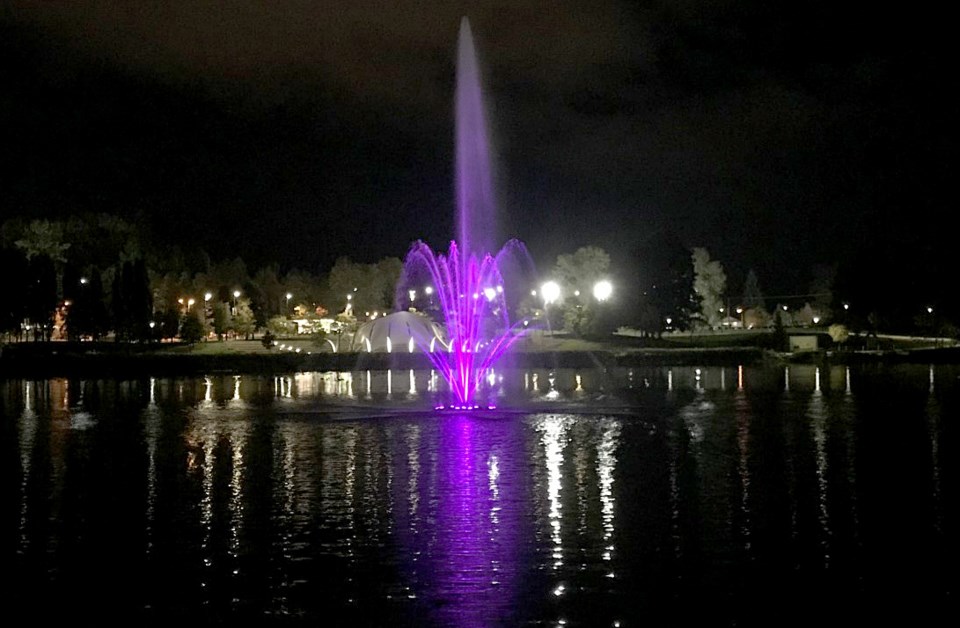There is no cure for epilepsy.
That's according to the provincial organization that oversees research studies into the disease as it continues raise awareness for the more than 50,000 people in the province impacted or diagnosed.
To cap the month-long campaign, the BC Epilepsy Society (BCES) has partnered with Tri-City municipalities to light up several landmarks the colour purple this weekend in showing support for local residents.
This includes the fountain at Lafarge Lake in Coquitlam's Town Centre Park and Port Coquitlam city hall; both will be illuminated Friday night (March 25).
On Saturday (March 26) — also known as International Purple Day — the guiding lights along Pinetree Way and Port Moody city hall will also shine in a vibrant violet.
"Epilepsy is a medical condition that causes a person to have recurring seizures. These seizures are caused by excessive discharges of electrical impulses in the brain," the BCES explains.
"There are over 40 different types of seizures that affect consciousness, movement, sensation, and behaviours. Seizure symptoms depend on where in the brain the abnormal electrical activity occurs and how much of the brain is being affected."
Every March, the BCES vocalizes the need to extend research opportunities into epilepsy in hopes of finding more effective treatments.
While there is no cure for the disease, the non-profit says symptoms can be treated through medications to control seizures.
However, about one third of people with epilepsy will still have seizures.
Of all diagnoses, 70 per cent have unknown causes, while the remaining 30 per cent have factors that include anything from a stroke to brain tumours and genetics.
"Seizures can be convulsive or non-convulsive," the BCES further states on its website, noting roughly one in 12 people will have at least one seizure in their lifetime.
"A generalized seizure, such as a tonic-clonic seizure can cause a complete loss of consciousness and shaking of the entire body while a focal seizure, such as a focal impaired awareness seizure may involve the person being in a trance-like state, experiencing altered sensations, having uncontrolled movements, or being unable to speak.
"Seizures can vary in frequency and severity. In some people with epilepsy, seizures happen only occasionally; for others, it may happen up to hundreds of times a day."
WHEN SOMEONE IS HAVING A SEIZURE...
The BC Epilepsy Society lists the following steps of how to respond and tend to someone experiencing a seizure:
- Stay calm
- Protect the person from injury
- Cushion their head
- Move objects out of their way
- Loosen anything tight around their neck
- Remove their glasses (if any)
- Gently turn the person onto their side as soon as possible
- Stay with the person until consciousness is fully regained
- Be reassuring and comforting afterwards
- Never put anything in the person’s mouth
- It could break their teeth or block their airway
- A person cannot swallow their tongue during a seizure
- Do not restrain or hold the person down
- After the seizure, talk gently to comfort and reassure the person
The society adds an ambulance should be called if any of the following applies:
- A seizure lasts for more than five minutes
- There are repeated seizures
- It's a first-time seizure (i.e., no known history)
- If a person is injured, pregnant or has diabetes
For more information, you can visit the BC Epilepsy Society's website.
Other notable B.C. landmarks set to light up purple this Saturday includes BC Place and Science World in Vancouver, the White Rock Pier, the BC Legislature in Victoria and the Anvil Centre in New Westminster.





